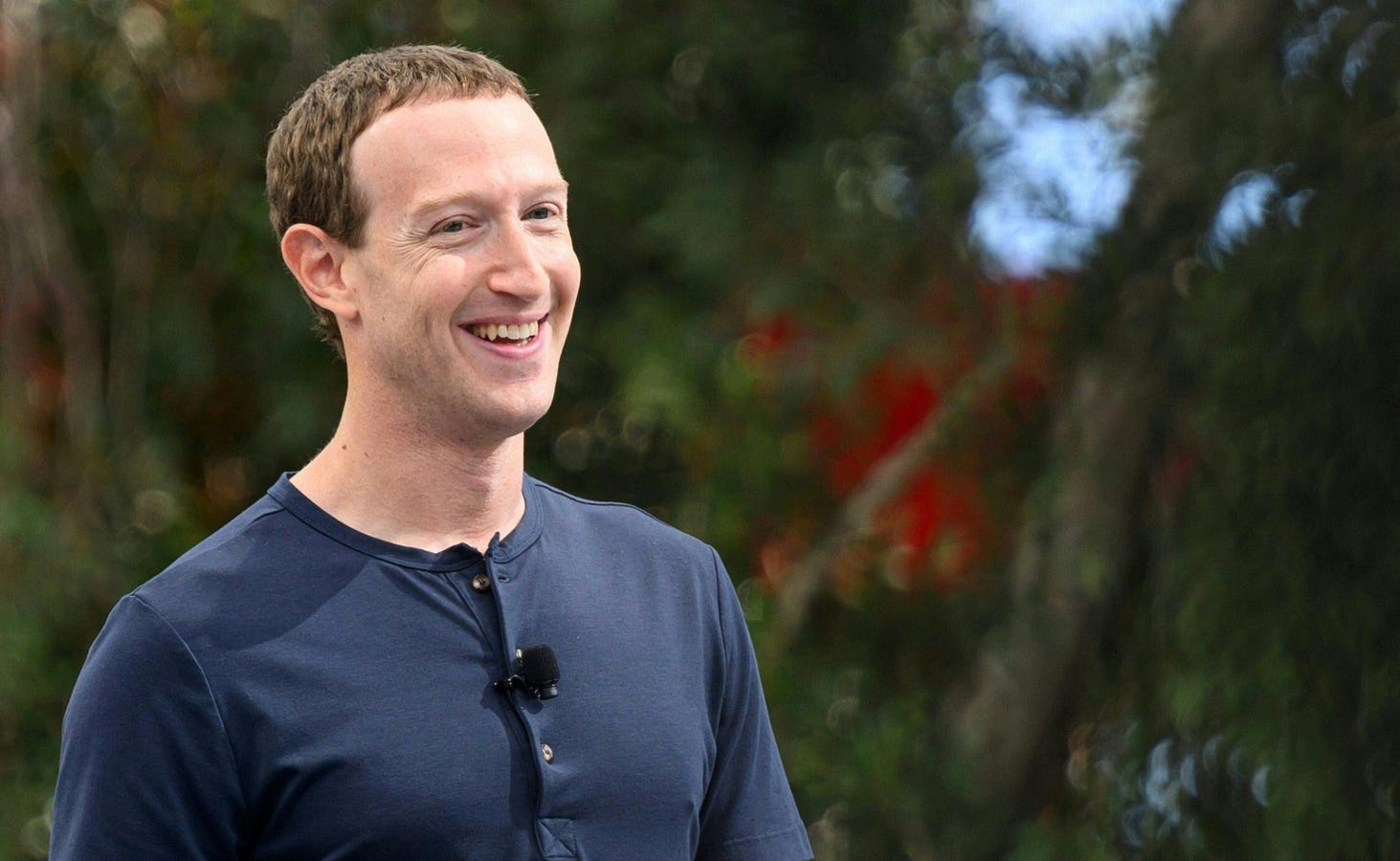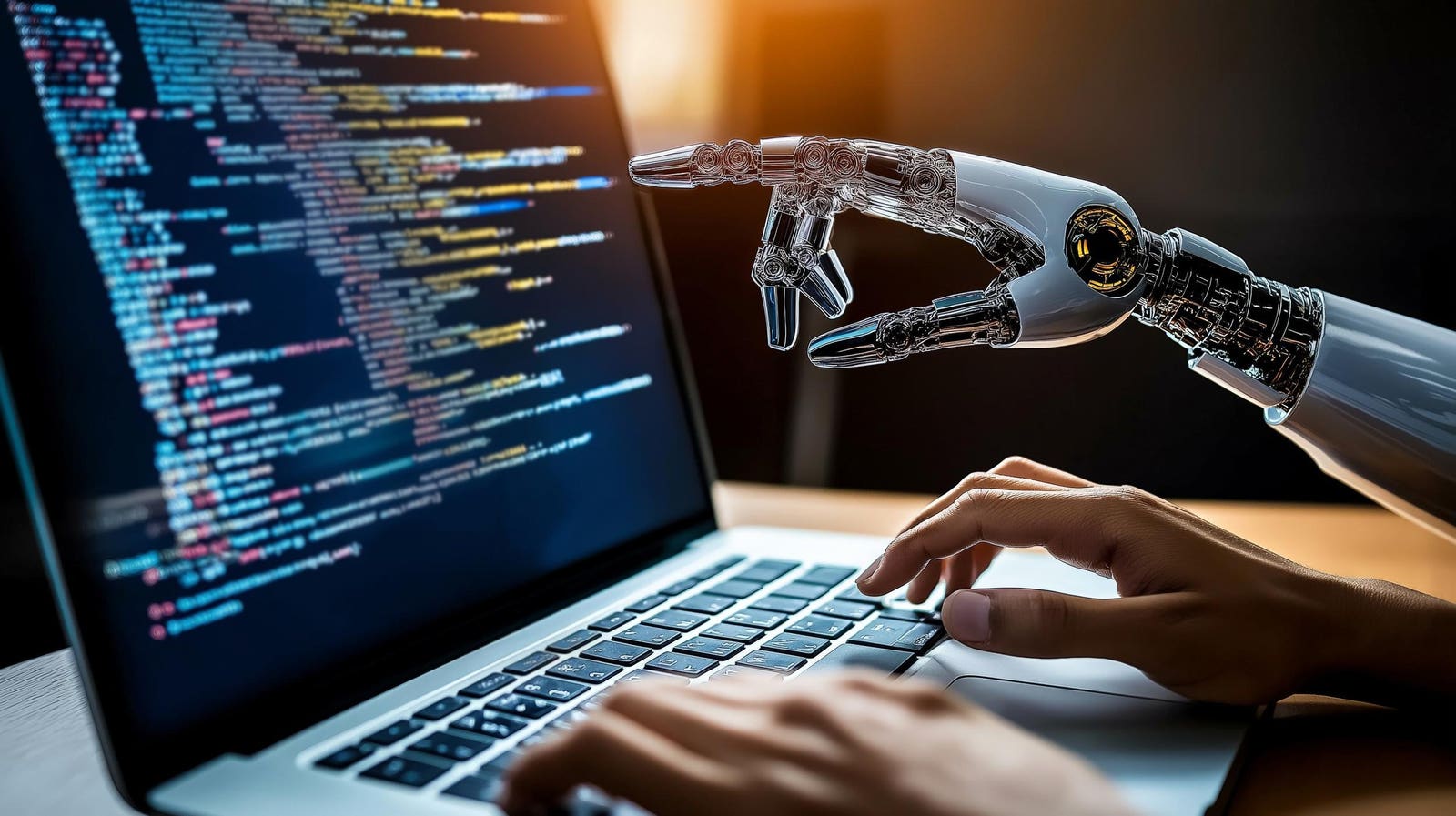Meta founder and CEO Mark Zuckerberg speaks during Meta Connect event at Meta headquarters in Menlo Park, California on September 27, 2023.
AFP via Getty Images
When the leaders of large American tech companies take the time to pen a notable broadside on AI, people tend to pay attention.
Case in point, this week, “the Zuck” himself has a new essay talking about the future of artificial intelligence, in which he calls the improvement in tech “slow, but undeniable,” saying superintelligence is “now in sight.”
“It seems clear that in the coming years, AI will improve all our existing systems and enable the creation and discovery of new things that aren’t imaginable today,” Zuckerberg writes. “But it is an open question what we will direct superintelligence towards.”
I gad to read that last sentence a couple of times, because of its structure. Indeed, this is one of the central open questions, as we are soundly in uncharted waters.
New and Old Shifts
Contrasting AI with what came before, Zuckerberg makes the point that 200 years ago practically everybody was engaged in one pursuit: agriculture.
“90% of people were farmers growing food to survive,” he writes. “Advances in technology have steadily freed much of humanity to focus less on subsistence, and more on the pursuits we choose.”
I would take this a step further and add that, curiously, almost all human societies up until the second half of the twentieth century faced challenges regarding getting enough calories to citizens, while in today’s American society, amid seemingly infinite mountains of cheap food, the focus is more on keeping calorie counts down.
Anyway, Zuckerberg points to a future where people continue to spend more time on things like creativity and building cultures, fostering relationships, and enjoying a better quality of life.
“I am extremely optimistic that superintelligence will help humanity accelerate our pace of progress,” he writes.
AI and Personal Empowerment
Zuckerberg’s next point is around freedom, and enabling people to have greater agency.
It struck me that a major part of this will be data ownership, and we can use that as a litmus test to see if industry leaders are actually serious about personal empowerment. Will we have systems that reward content creators and others for their creative work, or centralized companies either pirating IP outright, or getting around data ownership issues?
“As profound as the abundance produced by AI may one day be, an even more meaningful impact on our lives will likely come from everyone having a personal superintelligence that helps you achieve your goals, create what you want to see in the world, experience any adventure, be a better friend to those you care about, and grow to become the person you aspire to be,” Zuckerberg adds.
Many of these goals are rather vague, but I was interested in the one about being a better friend, and thinking about how AI would apply to that. Is he talking about remembering someone’s birthday, and sending a card?
Thoughts on Job Displacement
You don’t have to look too far on the Internet to see the majority of various survey respondents saying that they’re worried about job displacement.
After all, AI can do many things better than people. That’s not constrained to simple data crunching – it encompasses a wide spectrum of both physical and knowledge-based tasks.
Zuckerberg again emphasizes that he wants the company to be human-centered, but he contrasts this with another industry view that he implies carries weight in the general community.
“This (view toward personal enablement) is distinct from others in the industry who believe superintelligence should be directed centrally towards automating all valuable work, and then humanity will live on a dole of its output,” he writes. “At Meta, we believe that people pursuing their individual aspirations is how we have always made progress expanding prosperity, science, health, and culture. This will be increasingly important in the future as well.”
Correspondingly, Zuck also suggests that in the new AI era, people will spend more time “creating and connecting,” and presumably, less time working for the Yankee dollar.
A New Interface
I found another part of Zuckerberg’s essay compelling, and rather predictive.
We’ve known for a while now that our smartphones are not interfaces designed for AI. They were designed decades before AI really came to the forefront.
So we’re going to need new kinds of interfaces.
Zuckerberg enumerates one of these very specifically, and in my view, this is one of the biggest contributions of this essay.
“Personal devices like glasses that understand our context because they can see what we see, hear what we hear, and interact with us throughout the day will become our primary computing devices,” he writes.
This is important – just think about the difference between a smartphone that sits in your pocket, and a pair of glasses that automatically imbibes all of the information from your field of vision, every moment of every day.
That massive data is going to unlock all kinds of interactions between you and your glasses that will make smartphones look like antiquated bricks.
We just haven’t gotten there yet.
Some Amount of Idealism
“We believe the benefits of superintelligence should be shared with the world as broadly as possible,” Zukerberg writes, also conceding that we will see “novel safety concerns” pop up.
“We’ll need to be rigorous about mitigating these risks and careful about what we choose to open source,” he adds. That adds to the ongoing debate around open source versus closed source models: on the one hand, people want openness to keep the playing field level – on the other hand, closed source projects help to prevent some kinds of liability from powerful tech falling into the wrong hands.
“The rest of this decade seems likely to be the decisive period for determining the path this technology will take, and whether superintelligence will be a tool for personal empowerment or a force focused on replacing large swaths of society,” Zuckerberg writes.
And then there’s this:
“Meta believes strongly in building personal superintelligence that empowers everyone. We have the resources and the expertise to build the massive infrastructure required, and the capability and will to deliver new technology to billions of people across our products. I’m excited to focus Meta’s efforts towards building this future.”
In this essay, you get definite echoes of past screeds by Sam Altman, which I’ve reported on quite a bit. You also get some correlation to the kinds of principles that our conference presenters talk about when they analyze the difference between autonomous people and centralized corporate systems.
As Will.i.am pointed out in his repeat appearances at annual events, we need to promote the idea that individual humans will have the rights to their own data.
There will also need to be effective regulations and checks on centralized power and control of the AI systems.
So, with this in mind, many of us would think that it’s a good sign that people like Zuckerberg are thinking about these issues, and expressing their willingness to work on progress.
As I’ve said so many times we’re going to see a lot in the second half of this year. It’s not even fall yet and as Zuckerberg mentioned, we’re marching quickly towards super intelligence, AGI, the singularity – call it whatever you want it. It’s looming larger on the horizon.









